Interview: Will Epstein of High Water
The frequent Nicolas Jaar collaborator debuts his ethereal EP “The Beautiful Moon” on music subscription service Other People
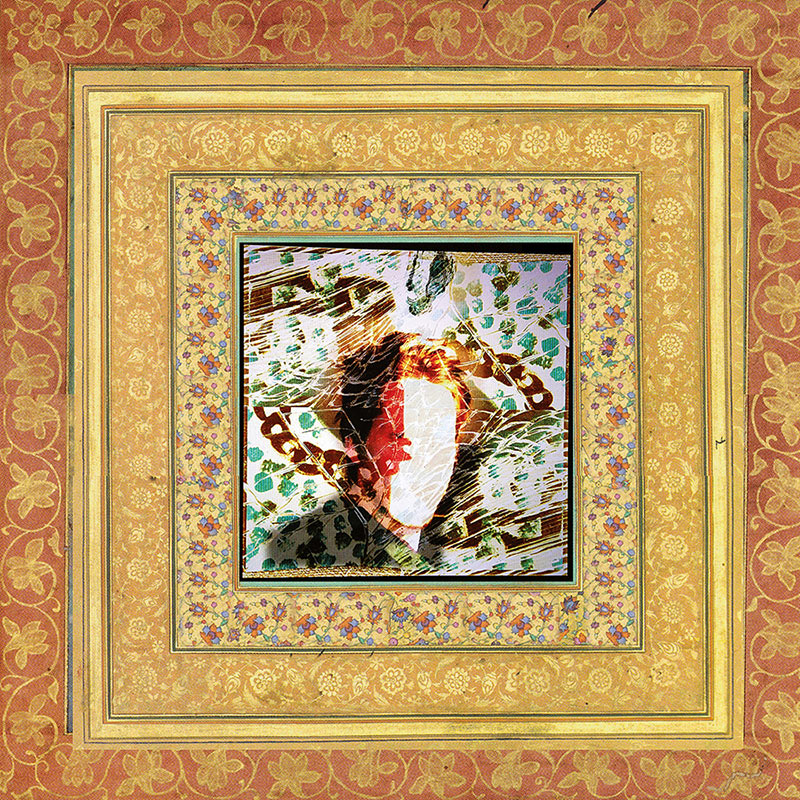
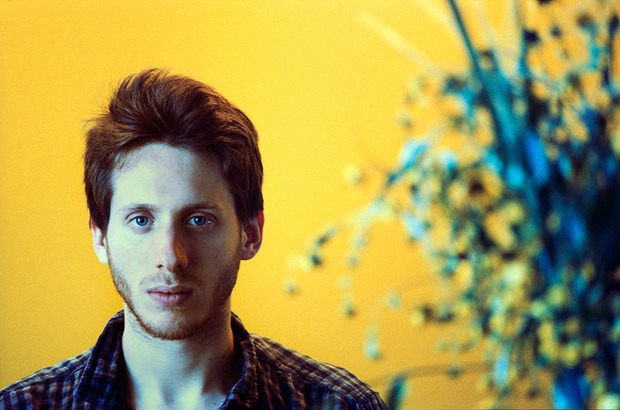
Since graduating from college last year, musician Will Epstein has kept a low profile despite assembling an impressive resume. Born and raised in NYC’s TriBeCa neighborhood, Epstein went on to study electronic music at Brown University, the same alma mater as his frequent collaborator, the Chilean-American producer Nicolas Jaar, who he’s been friends with since the age of nine. Epstein, a multi-instrumental artist, has toured with Jaar playing saxophone, keyboard and samples at some of the largest music festivals around the world, including Roskilde, Glastonbury and Øyafestivalen, while adding mesmeric saxophone lines to tracks like “And I Say” and “Never Have I Ever.”
In fact, Jaar’s current project—a musical collaboration with Dave Harrington called Darkside—might have never formed if it weren’t for Epstein, who was in what he calls a “legendary band” with Harrington at Brown—appropriately titled Spank City. Epstein introduced Jaar to Harrington, and the duo would later go on to remix the entirety of Daft Punk’s Random Access Memories and release the acclaimed full-length album Psychic.

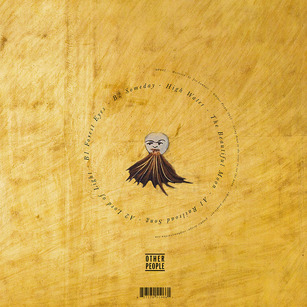
Epstein is dropping his own debut EP, The Beautiful Moon, 13 October 2013, under the moniker High Water and it surely won’t get lost in the shadows of Darkside’s recent release. Four songs construct a 16-minute-long experimental electronic fairytale, or, as Epstein explains, “a sparkling new fire clean-up act that throws rain on your face and tears on your sandals.” This isn’t radical for Epstein, whose music honors thesis was titled “Sweet Pops and Lakes.” The Beautiful Moon is more instrumental than lyrical, but when Epstein does sing, it’s very much a lullaby—sometimes consoling and other times indiscernible, like a wordless instrument. Synths strike like bolts of lightning in the song “Lord of Light,” and the rhythms throughout the album are similarly volatile—and so follows the listener’s consciousness as it drifts in and out of the seemingly infinite layers of ethereal sound. We spoke with the artist over dinner just around the corner from his apartment, and attempted to decrypt his philosophy behind imagining such music.
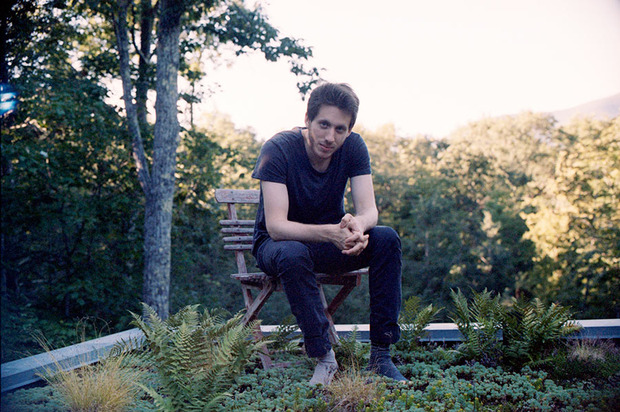
The Beautiful Moon seems to avoid being placed in any sort of genre. Was that intentional?
I found it’s usually not that healthy to think too much in terms of genre when you’re trying to write music. But conceptually, those things can be fun to work off of. I want to make something that is psychedelic in a way. How I define psychedelic is, something that cuts through the cracks in your consciousness. And I don’t mean psychedelic as a genre of music. I mean psychedelic as…
Like the word?
Yeah, like the English word.
I find it’s difficult to write about music sometimes, because you often have to resort to using the same words over and over that society has agreed upon.
It’s a real drag. It’s true, nobody’s really figured that out. Nobody’s figured out a way to write about music without talking in terms of genre. And nothing pisses musicians off more than being put in a box.
It might be refreshing if artists wrote about their own music, on one platform.
You know, that’s actually something I’ve thought about a lot. There really should be a broader scope of artists writing about music.
Like Talkhouse, that website where an artist reviews another artist’s work.
Yeah, I remember reading the Lou Reed-Yeezus review. One of my big heroes, this guy John Zorn, he’s an experimental composer that plays the saxophone. He’s a downtown New York guy who does like a million things. He’s struggled a lot with people putting him into categories and boxes, and he started a series of books that are like musicians on music, writing about music, about their scene. He got people to write and there’s about six volumes and it’s huge. That’s a really beautiful thing, for that music. And it’s important to have that. I like that. I would like to read more of those.
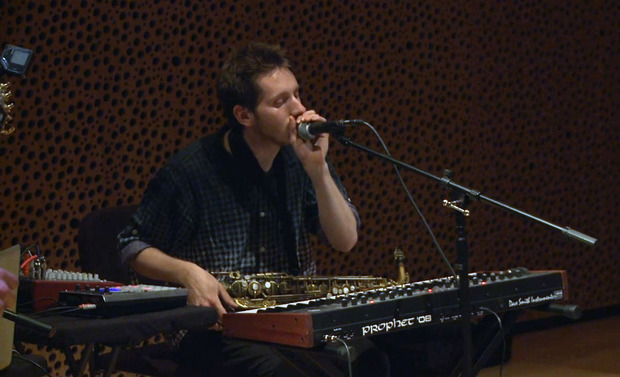
Aside from John Zorn, what are you listening to these days?
I’ve been listening to a lot of Bob Dylan. Dylan is my main man. I’m big into all the bootlegs and getting some rare concerts; I’m really into mid-90s, live Bob Dylan. I have an interesting relationship with Bob Dylan, because for most of my life until relatively recently, the last year or so, I never listened to words in music. But I loved Bob Dylan when I was in high school, middle school and stuff, he was one of my faves, but I never—I wasn’t listening to what he was saying, which is weird because that’s how a lot of people relate to him.
And I think part of it is, I feel like for somebody like Dylan, the thing that he wants to get across, it’s helpful for him to have these lyrics. And the lyrics act as like a spell, to summon the spirit. In a general way, I’m trying to explain how I could enjoy his music so much without listening to the lyrics. He uses these words to summon this emotion, and I as a listener can experience the spirit without knowing the spell. So I’ve been getting big on the lyrics recently. For me, the music [in The Beautiful Moon] is like 90% of it. But the lyrics add this last 10% that is actually really powerful. I want a song itself to be able to stand on its feet. I love the stuff on the EP but it’s defined so much by its production.
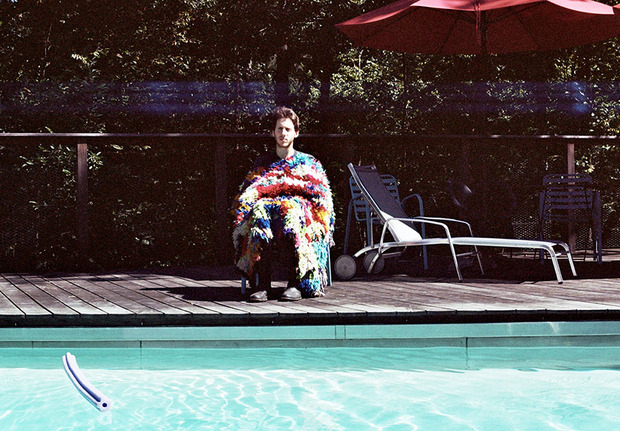
How did you settle on your name, High Water?
Names are a tricky beast. There wasn’t that much thinking. It actually came about in a conversation with a friend of mine; she actually said it first a few months before and it stuck with me. “High water” has a lot of connotations, of both water being a life-giving force but also a high water being very much a thing of our time, that kind of impending doom. It can embrace you in a warm way as well.
The phrase “High Water” feels like an allusion to an old spiritual, or something Bob Dylan-esque.
A secret is, there’s actually a Bob Dylan song called “High Water,” that he wrote for this old blues singer, Charley Patton. It kind of has an old blues sort of feeling to me that I like; I feel a kinship in that tradition in whatever kind of abstract form that I deal with.
While you wrote most of the music right after graduating from Brown last year, I heard you made some new changes last week.
We had some problems with the rights for “Someday My Prince Will Come” at the last minute; it’s just called “Someday” now. I had 24 hours to make an emergency new version and get it mastered because they were printing vinyls that week. It’s funny, that song went through so many different versions. I started out just wanting to do a flat-out cover of “Someday My Prince Will Come,” and [now] the end product has 0% of that in it.
What’s your thought process for recording and composing, especially when last-minute craziness like that occurs?
Tom Waits has some quote about “going out and killing the sound.” You hear the sound in your head, and you got to go out and you got to find it and you got to kill it. You do what you have to do. Sometimes you have to do some crazy shit, and sometimes you don’t. It’s just doing what you need to capture this thing.
The Beautiful Moon will be released this Sunday, 13 October on Other People, a subscription service started by Jaar that releases new music each week.
Fourth image courtesy of the artist, all other images courtesy of Jed DeMoss












